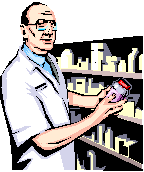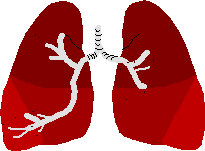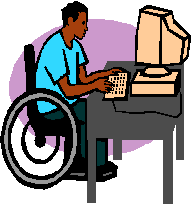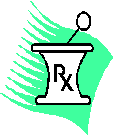DOH Medicaid Update July 2003 Vol.18, No.7
Office of Medicaid Management
DOH Medicaid Update
July 2003 Vol.18, No.7
State of New York
George E. Pataki, Governor
Department of Health
Antonia C. Novello, M.D., M.P.H., Dr. P.H.
Commissioner
Medicaid Update
is a monthly publication of the
New York State Department of Health,
Office of Medicaid Management,
14th Floor, Room 1466,
Corning Tower, Albany,
New York 12237
Table of Contents
Medicaid Recipients Cannot Be Billed
Pharmacy Co-Payment Exemption For Residents In Adult Care Facilities
Changes To April 2003 DME & Pharmacy Fee Schedules
Basis Of Payment For Durable Medical Equipment For Managed Care Recipients
Pharmacists Please Note Change In Pharmacy Reimbursement
Frequently Asked Questions On Speech Generating Devices
Pharmaceutical Errors/Misfills
Work-Related Asthma, What Is It?
Medicaid Buy-In For Working People With Disabilities
Reminder: You Can Request The Medicaid Update Electronically
Change In Definition Of Medicaid Date Of Service For Laboratory Testing
Medicaid Payment To Laboratories For Hepatitis C Tests
HIPAA News - Have You Replaced Your Old 330 POS Device?
HIPAA News - Trading Partner Agreement
Announcing Two New Managed Care Special Needs Plans
Patient Tools: Diabetes, Sick Days, and Travel
Open Letter From Commissioner Novello
HIPAA News - New Codes For PPAC Providers
Prior Authorization Tips
HIPAA
NEWS
In the June 2003 Medicaid Update, information about the Electronic Provider Assisted Claim Entry System (ePACES) was introduced. ePACES is the HIPAA compliant replacement for the current PACES software and Eligibility Field software. ePACES is a web-based application that will be made available via the Internet free to providers. ePACES will provide the following functions:
- Client Eligibility/Service Authorization/Dispensing Validation System Inquiry and Response (HIPAA transactions 270, 271, and 278)
- Claim Status Inquiry and Response (HIPAA transactions 276 and 277)
- Claims (HIPAA transactions 837 Dental, Institutional, and Professional)
You will soon receive a direct mailing from Computer Sciences Corporation (CSC) which will include a "token" - a number that will allow you to access the ePACES registration screen and obtain a User ID and Password.
Questions about ePACES should be directed to CSC's HIPAA Inquiry Unit at (866) 840-3445.
MEDICAID RECIPIENTS CANNOT BE BILLED
Return to Table of Contents
This is a reminder to all hospitals, free-standing clinics and individual practitioners about requirements of the Medicaid program related to requesting compensation from Medicaid recipients, including Medicaid recipients who are enrolled in a managed care plan and in Family Health Plus.
Acceptance and Agreement
When a provider accepts a Medicaid recipient as a patient, the provider agrees to bill Medicaid for services provided or, in the case of Medicaid managed care enrollee, agrees to bill the recipient's managed care plan for services covered by the contract. The provider is prohibited from requesting any monetary compensation from the recipient, or his/her responsible relative, except for any applicable Medicaid co-payments. A provider may charge a Medicaid recipient, including a Medicaid recipient enrolled in a managed care plan, ONLY when both parties have agreed PRIOR to the rendering of the service that the recipient is being seen as a private pay patient. This must be a mutual and voluntary agreement. It is suggested that the provider maintain the patient's signed consent to be treated as private pay in the patient record.
A provider who participates in Medicaid fee-for-service but does not participate in the recipient's Medicaid managed care plan may not bill Medicaid fee-for-service for any services included in the managed care plan, with the exception of family planning services. Neither may such a provider bill the recipient for services that are covered by the recipient's Medicaid managed care contract unless there is prior agreement with the recipient that he/she is being seen as a private patient as described above. The provider must inform the recipient that the services may be obtained at no cost to the recipient from a provider that participates in the recipient's managed care plan.
Claim Submission
The prohibition on charging a Medicaid recipient applies when a participating Medicaid provider fails to submit a claim to Computer Sciences Corporation (CSC) or the recipient's managed care plan within the required timeframe. It also applies when a claim is submitted to CSC or the recipient's managed care plan and the claim is denied for reasons other than that the patient was not Medicaid eligible on the date of service.
Collections
A Medicaid recipient, including a Medicaid managed care enrollee, must not be referred to a collection agency for collection of unpaid medical bills or otherwise billed, except for applicable Medicaid co-payments, when the provider has accepted the recipient as a Medicaid patient. Providers may, however, use any legal means to collect applicable unpaid Medicaid co-payments.
Emergency Medical Care
A hospital that accepts a Medicaid recipient as a patient, including a Medicaid recipient enrolled in a managed care plan, accepts the responsibility of making sure that the patient receives all medically necessary care and services. Other than for legally established co-payments, a Medicaid recipient should never be required to bear any out-of-pocket expenses for medically necessary inpatient services or medically necessary services provided in a hospital based emergency room (ER). This policy applies regardless of whether the individual practitioner treating the recipient in the facility is enrolled in the Medicaid program.
When reimbursing for ER services provided to Medicaid recipients in managed care, health plans must apply the Prudent Layperson Standard, provisions of the Medicaid Managed Care Model Contract and Department directives.
Claiming Problems
If a problem arises with a claim submission, the provider must first contact CSC or, if the claim is for a service included in the Medicaid managed care benefit package, the enrollee's Medicaid managed care plan. If CSC or the managed care plan is unable to resolve an issue because some action must be taken by the recipient's local department of social services (e.g., investigation of recipient eligibility issues), the provider must contact the local department of social services for resolution.
For questions regarding Medicaid managed care, please call the Office of Managed Care at (518) 473-0122. For questions regarding Medicaid fee-for-service, please call the Office of Medicaid Management at (518) 473-2160.
Pharmacy Co-Payment Exemption
For Residents in Adult Care Facilities
Return to Table of Contents

Medicaid recipients who are residents in adult care facilities licensed by the Department of Health are exempt from co-payments for pharmacy items. Effectively immediately, when servicing this population, pharmacies are advised to:
- enter '007' in field 416 of an NCPDP claim for payment; or,
- enter 'Z7' in the Copay Bypass field, position 24-25, on the Document Header 2 record of the magnetic specifications for a magnetic media claim; or,
- enter 'Z7' in the Recipient Other Insurance Code field on the claim form when submitting a paper claim.
Questions can be directed to the Bureau of Policy Development and Agency Relations at (518) 473-2160.

CHANGES to APRIL 2003
DME and PHARMACY FEE SCHEDULES
Return to Table of Contents
Please make the following changes (noted in bold print below) to the April 2003 fee schedule, effective for dates of service August 1, 2003 and later:
| CODE | PRODUCT | QUANTITY/SIZE | REFILLS | PRICE |
| A4628 | Oropharyngeal suction catheter, each (e.g., Yankauer) | each (up to 5) | 5 | $2.02 |
| CODE | PRODUCT | PRICE |
| K0031 | #Safety belt/pelvic strap, each (each point, up to four points) | 14.90 |
| K0090 | #Rear wheel tire for power wheelchair, any size, each (limited to drive or rear wheel foam filled flat proof tires) | 40.90 |
| K0094 | #Wheel tire for power base, any size, each (limited to non-drive or caster wheel foam filled flat proof tires) | 24.18 |
Questions may be referred to the Bureau of Medical Review and Payment at (518) 474-8161.
BASIS OF PAYMENT FOR DURABLE MEDICAL EQUIPMENT
FOR MANAGED CARE RECIPIENTS
Return to Table of Contents
Durable Medical Equipment (DME) providers may bill for certain DME items based on the order date, rather than the delivery date, when the recipient loses Medicaid eligibility, or enrolls in, or disenrolls from, a Medicaid managed care plan.
In most circumstances, the Medicaid program will pay for DME items only if the recipient was eligible on the date items are provided to the recipient. Section 2.2.10 of the DME MMIS Provider Manual allows for two circumstances under which the order date may be used to claim payment for DME items. Under the following circumstances, Medicaid providers may use the order date to claim for a DME item if the recipient loses eligibility or enrolls in a Medicaid managed care plan after an item is ordered but before it is provided to the recipient:
- The item of DME, medical/surgical supply, prosthetic, orthotic or orthopedic footwear is for a recipient under age 21, has been prior approved by an official of the Physically Handicapped Children's Program and was provided within the time period specified in the prior approval determination, but not in excess of six months from the date of loss of eligibility or enrollment in a Medicaid managed care plan; or
- A custom-made item of DME, orthopedic footwear, prosthetic or orthotic appliance was ordered for a recipient but was delivered to the individual after eligibility expired or after the recipient enrolled in a Medicaid managed care plan.
Likewise, under the above circumstances, DME vendors participating in the Medicaid managed care program should bill the managed care plan using the order date if the enrollee loses Medicaid eligibility or disenrolls from Medicaid managed care after the item is ordered but before it is provided to the enrollee.
Questions regarding this article can be directed to the Office of Managed Care at (518) 473-0122.
PHARMACISTS
LEGISLATION HAS CHANGED
PHARMACY REIMBURSEMENT
Return to Table of Contents

As a result of recently passed legislation, the estimated acquisition cost, on which Medicaid payment for prescription drugs is based, is now defined as:
Average Wholesale Price of the prescription product, minus twelve (12) percent.
This change will take effect on July 1, 2003.
Questions may be directed to the Pharmacy and Policy Operations Unit at (518) 486-3209 or ppno@health.state.ny.us.
FREQUENTLY ASKED QUESTIONS
ON SPEECH GENERATING
DEVICES
Return to Table of Contents

- 1. What is a speech-generating device?
- Speech generating devices are speech aids that provide an individual who has severe speech impairment with the ability to meet functional speaking needs. Speech generating devices:
- Are dedicated speech generating devices, used solely by the individual who has a severe speech impairment;
- May have digitized speech output using pre-recorded messages with defined recording times;
- May have synthesized speech output, which requires message formulation by spelling and device access by physical contact with the device-direct selection technique, or multiple methods of device access.
- Speech generating devices are speech aids that provide an individual who has severe speech impairment with the ability to meet functional speaking needs. Speech generating devices:
- 2. What types of products are not dedicated devices?
- Devices that are not dedicated, and thus not covered by Medicaid, are:
- Capable (locked or unlocked) of running software for purposes other than for speech generation, e.g., devices that can also run a word processing package, an accounting program, or perform other non-medical functions;
- Laptop computers, desktop computers, tablet computers or personal digital assistants, which may be programmed to perform the same function as a speech generating device, are non-covered since they are not primarily medical in nature and do not meet the definition of durable medical equipment;
- Not useful to someone without a severe speech impairment.
- Devices that are not dedicated, and thus not covered by Medicaid, are:
- 3. What are the prescriber's responsibilities?
- Dedicated speech generating devices require prior approval and are covered when medically necessary. Documentation of medical necessity must be included with the prior approval request. The request must include:
- The physician prescription (includes specifications for the device and the necessary therapy and training to allow the individual to meet his/her communication potential);
- The evaluation worksheet and report completed by a NYS licensed Speech Language Pathologist (SLP).
- Dedicated speech generating devices require prior approval and are covered when medically necessary. Documentation of medical necessity must be included with the prior approval request. The request must include:
- 4. What are the provider's responsibilities?
- Providers of dedicated speech generating devices are expected to:
- Be knowledgeable about the items they dispense and provide information to the individual about the use and care of the item;
- Assist physician and SLP in coordinating training on the device;
- Provide information regarding warranty services, uphold the terms of the warranty and be responsible for any needed replacements or repairs that are due to defects in quality or workmanship.
- Providers of dedicated speech generating devices are expected to:
Questions may be referred to the Bureau of Medical Review and Payment at (518) 474-8161.
PHARMACEUTICAL ERRORS/MISFILLS
WHY DO THEY HAPPEN AND HOW
CAN THEY BE CORRECTED?
Return to Table of Contents

Pharmaceutical errors occur without warning, at any time and place, in various situations. The following are common types of errors and distractions that occur leading to increased errors. Also, ways to prevent errors and steps to avoid these errors are stated below:
Common Types of Dispensing Errors:
- Wrong quantities: 100 vs. 10 tablets; 10ml vs. 5ml
- Wrong strength: Strength: 100mg vs. 10mg
- Wrong dosage form: acyclovir PO vs. IV
- Wrong calculated dose: 0.1mg vs. 1.0mg
- Wrong drug: amitriptyline vs. imipramine, Novolin vs. Novolog
Types & Frequency of Distractions:
- Phone
- Difficult customers
- Inadequate hardware and software
- Keeping easily mistaken drugs near each other
Prevention of Errors:
- Properly orient new staff to procedures
- Assure adequate lighting in work area
- Designate a "distraction free" area when performing calculations
- Repeat the prescription back to the prescriber for verification
STEPS to take when an error has been recognized:
- Correct the error NOW
- Apologize to the patient (or his/her caregiver)
- Show earnest concern
- Report the error to appropriate management personnel
- Document the error (detail remedy used)
Source: www.ismp.org. Click on "Self Assessment", then "Community" p15 #47,p21 #95, #104, and p24 #129.
PREVENTING PATIENT ERRORS: Ask the patient the following questions:
WHAT did the doctor tell you the medicine is for?
HOW did the doctor tell you to take the medicine?
WHAT directions did your doctor tell you about how to take the medicine?
Source: www.ismp.org. Click "Self Assessment", then "Community" p. 24 #148
Remember anyone can make an error...a good pharmacist honors
his/her profession in correcting the error.

WORK-RELATED ASTHMA
WHAT IS IT?
Return to Table of Contents
Work-related asthma (WRA) is asthma that is attributable to, or is made worse by, environmental exposures in the workplace. Over 250 workplace agents are associated with WRA. The diagnosis of WRA is made by confirming the diagnosis of asthma and by establishing a relationship between asthma and work. WRA should be considered in every case of adult-onset asthma or asthma that worsens in adult life. It is important to recognize that this type of asthma is preventable and, if diagnosed early, may be partially or completely reversible if exposures are adequately controlled or stopped. Occupational asthma is the most prevalent occupational lung disease in developed countries.
WRA falls into three categories 3 :
- Immunologically mediated asthma resulting from exposure to sensitizers in the workplace (occupational asthma with latency);
- Asthma resulting from acute exposure to irritants in the workplace (reactive airways dysfunction syndrome or RADS); and
- Pre-existing asthma exacerbated by workplace environmental exposures (work-aggravated asthma). Work-aggravated asthma occurs in individuals with symptomatic asthma that is significantly worsened by workplace environmental exposures. This can include an increase in frequency or severity of symptoms, an increase in medication required to control symptoms, or clinical improvement when exposures are reduced or eliminated.
The preliminary evaluation for WRA should include a full clinical evaluation for asthma, and completion of a full occupational and environmental history. The latter should include an employment history, history of temporal pattern of symptoms with respect to work, history of occupational and environmental exposures and symptom triggers, and if possible, objective verification of exposures.2 Early and accurate diagnosis of WRA, accompanied by appropriate modification or cessation of exposures, is important in the treatment of the individual.
Patients demonstrating clinical evidence of occupational asthma are reportable to the New York State (NYS) Department of Health's Occupational Lung Disease Registry (866) 807-2130. Reporting diagnosed cases of WRA to the Registry can help in the prevention of ongoing exposure for the reported individual and coworkers. NYS Department of Health staff investigate the reported case to identify workplaces and industries where exposures may cause lung disease among the employees. Program staff work with both employees and employers to educate them about appropriate work practices and to assist them in preventing workplace exposures.
For further information about the Occupational Lung Disease Registry, call Kitty Gelberg, Ph.D., MPH, at (866) 807-2130, or e-mail her at khg01@health.state.ny.us.

REMINDER
Physicians are required by law to report suspected cases of occupational lung disease to the NYS Department of Health.
To file a report, call toll free: (866) 807-2130
More information about occupational asthma and physician reporting forms can be found at: www.nyhealth.gov/environmental/workplace/lung_disease_registry/
1Lombardo LJ, Balmes JR. Occupational Asthma: A Review. Environmental Health Perspectives 108(4):697-704, 2000.
2Freidman-Jimenez; G, Beckett WS, Szeinuk J, Petsonk EL. Clinical Evaluation, Management, and Prevention of Work-Related Asthma.
American Journal of Industrial Medicine 37:121-141, 2000.
3Wagner G, Wegman D. Occupational asthma: Prevention by definition. American Journal of Industrial Medicine 33:427-429, 1998.
MEDICAID BUY-IN FOR WORKING PEOPLE WITH DISABILITIES
NEW PROGRAM
Return to Table of Contents

On July 1, 2003, the New York State Department of Health implemented the Medicaid Buy-In Program for Working People with Disabilities (MBI-WPD). Through the Federal Ticket to Work and Work Incentives Improvement Act of 1999 and the New York State Health Workforce Recruitment and Retention Act of 2002, the MBI-WPD was established to make Medicaid coverage available to certified disabled people who are working and earning more than the allowable limits for regular Medicaid.
To be eligible for this coverage, a person must:
- Have a disability as defined by the Social Security Administration;
- Be between 16 and 64 years of age; and
- Be engaged in work for which financial compensation is received and all applicable federal and state income and payroll taxes are paid (includes part-time and full-time work).
The applicant/recipient may have net incomes up to 250% of the federal poverty level (FPL), and have countable resources that do not exceed $10,000. This means that the program will extend Medicaid coverage to working disabled individuals with a gross income up to $46,170 for a household of one ($61,870 for a household of two). Payment of a premium will be required if net income is between 150%-250% FPL. The premium is 3% of earned income and 7.5% of unearned income. People with income below 150% FPL pay no premium.
Until an automated system is completed to collect and track premium payments, a moratorium on premium collection exists. The anticipated date for the automated collection and tracking system is Spring 2004.
Questions regarding this article should be directed to the Bureau of Consumer & Local District Relations at (518) 473-5330.
REMINDER: YOU CAN REQUEST
THE MEDICAID UPDATE ELECTRONICALLY
Return to Table of Contents
If you are interested in receiving the Medicaid Update via e-mail, please send us a note at MedicaidUpdate@health.state.ny.us and include your name, Medicaid provider ID#, and e-mail address. Please also let us know if you would like to continue to receive a hard copy of the Medicaid Update in addition to the e-mail version. We don't want to burden you with a paper copy if you do not need it.
CHANGE IN DEFINITION OF MEDICAID DATE OF SERVICE
FOR LABORATORY TESTING
Return to Table of Contents

Medicaid currently defines the date of service for clinical laboratory providers as the date on which final laboratory test results were reported in writing, hardcopy or downloadable form to the ordering practitioner.
Effective for dates of service on or after July 1, 2003, the Medicaid definition for "date of service" for laboratory providers will change to the date of specimen collection. This also includes the items as follows:
- For specimen collections that span more than one calendar day, the date of service is the date the collection began.
- For laboratory tests that use a specimen taken from storage, the date of service is the date the specimen was removed from storage.
This change in policy will make consistent the policies for claim submission of Medicaid and Medicare, thereby allowing laboratories to maintain one system for accessing and record keeping for specimens of individuals dually insured by Medicaid and Medicare.
Department rules at 10 NYCRR Subpart 59-1.11 require laboratory reports to contain the date of collection. Laboratories must make every effort to obtain this information from the ordering practitioner or his or her agent (such as a visiting nurse) whenever collection is not performed by laboratory employees.
Please direct questions to the Bureau of Policy Development and Agency Relations at (518) 473-2160.
MEDICAID PAYMENT TO LABORATORIES FOR HEPATITIS C TESTS
Return to Table of Contents
Effective for dates of service on or after April 25, 2003, the Medicaid program has changed reimbursement for Hepatitis C laboratory testing. The maximum reimbursable amount for HCV Qualitative testing has been increased. Additionally, Medicaid will begin covering the HCV Genotypic assay and the HCV viral load test. Medicaid reimbursement is limited to FDA approved and home brew tests only.
- MMIS procedure code 87902 is to be used whenever a laboratory bills for a HCV genotypic assay test. The maximum reimbursable amount for code 87902 is $355.00. The HCV genotypic test is a covered service when clinically indicated, up to a maximum of one test per 12-month period-per patient. This test may be billed fee-for-service when it is ordered for a registered clinic patient.
- MMIS procedure code 87522 is to be used whenever a laboratory bills for a HCV Quantitative viral load test. The maximum reimbursable amount for code 87522 is $59.20. The HCV viral load test (quantitative) is a covered service when clinically indicated, up to a maximum of three tests per 12-month period-per patient.
- The fee for MMIS procedure code 87521 (the HCV Qualitative test) will increase from $21.43 to $48.00. The HCV Qualitative test is a covered service when clinically indicated, up to a maximum of one test per 12-month period-per patient.
Clinical laboratories, designated AIDS centers, hospital outpatient services, residential health care facilities, and ordering practitioners are reminded of the following payment policies applicable to all laboratory testing, including Hepatitis C testing:
- Laboratories may not bill for tests performed when patients are hospitalized. Medicaid payment to the hospital includes all necessary laboratory services.
- All ordered HCV genotype tests are reimbursable fee-for-service directly to the testing laboratory. This includes tests ordered for:
- Inpatients of Article 28 residential health care facilities,
- Patients of designated AIDS centers operating under the Tier AIDS payment structure, and,
- Patients of Article 28 certified outpatient clinics.
- All other ordered HCV quantitative viral load and HCV qualitative tests are reimbursable fee-for-service to the laboratory when such tests are ordered by a qualified practitioner from his/her office setting, or when such tests are ordered for Article 28 certified clinic patients and the costs of such tests are not included in the clinic rate. If laboratory testing is included in the Article 28 clinic rate, the testing laboratory must seek payment from the clinic from which the test has been ordered.
- Only Medicaid-enrolled clinical laboratories with Department of Health approval to perform HCV genotypic, qualitative and quantitative HCV viral load testing are entitled to reimbursement.
Please direct questions to the Bureau of Policy Development and Agency Relations at (518) 473-2160.
HIPAA
NEWS
HAVE YOU REPLACED YOUR
OLD TRANZ 330 POS DEVICE
TO COMPLY WITH HIPAA?
Return to Table of Contents
Your new VeriFone Omni 3750 POS device is now available for ordering. As reported in recent Medicaid Updates, due to HIPAA regulations, the VeriFone TRANZ 330 POS device will need to be replaced, or you will be required to switch to an alternate access method to interface with the NYS Medicaid Systems.
About the Omni 3750 (Pricing/Features):
The Omni 3750 has been priced at $817 (includes shipping and handling) plus tax and will include the following features:
- 5 year warranty on hardware failures
- Expedited Replacement Service (overnight replacement of damaged units)
- Integrated printer
- Faster modem for improved transmission speeds
- Easier to use ATM keys
Please note that as a free alternative to the POS device, the Medicaid Eligibility Field software replacement program called ePACES will be available in September of this year. ePACES will be available to providers at no cost. A letter will be sent during the month of August with more information on how to access this system.
Ordering Information:
During the month of June, letters were mailed to each provider submitting transactions via a POS device. That letter contained instructions and forms for ordering the new device. If you are a POS user and have not received a letter, please call the Provider Services POS Hotline listed below. You should order now to avoid any delays due to a potential last minute surge of orders prior to the October 16th deadline. Keep in mind that your new Omni 3750 can be used to access eMedNY just like the TRANZ 330, until such time as you receive instructions to download the new HIPAA software. The HIPAA software needs to be installed and working prior to October 16th or an interruption of service could result.
Providers with Internet Access:
www.eMedNY.org web site contains information on the ordering process, forms, user instruction manual and a list of frequently asked questions to help you through this transition. This website will provide timely updates and allow you to download various forms and information as needed.
Provider Services POS Information Hotline:
A special option on the Provider Services (800) 343-9000 number (Option 4) is now available for ordering information, forms, and general questions about the new Omni 3750. Information about alternate access methods is also available on this line. You can call this number Monday through Friday between 9:00 AM and 5:00 PM.
HIPAA
NEWS
TRADING PARTNER AGREEMENT
Return to Table of Contents
In May, Computer Sciences Corporation (CSC) mailed out HIPAA Trading Partner Agreements (TPA) to New York Medicaid providers that bill electronically. The TPA is an agreement between NY Medicaid and its trading partners, the providers. The main purpose of the TPA is to insure complete, mutual understanding of HIPAA regulations as they pertain to transactions, submissions and processing between the Medicaid program and providers. TPAs must be signed and returned to CSC before a provider may participate in provider testing and, subsequently, bill electronically in a HIPAA complaint manner. Please return your TPA to CSC as soon as possible if you haven't already done so. If you bill electronically and have not received a TPA, or if you have additional questions, please immediately contact the CSC HIPAA Inquiry Unit at (866) 840-3445.
Open Provider Testing:
State and CSC HIPAA staff have finalized Medicaid's HIPAA open provider testing strategy. Open provider testing will allow all providers who trade with the New York State Department of Health (NYSDOH) and who have returned completed Trading Partner EDI Information Forms and Agreements to CSC to:
- Test their HIPAA transactions (837, 270, 276, 278) through a test tool to validate HIPAA compliance with NYS Medicaid Business rules.
- Draw samples of HIPAA compliant transactions (855, 820) from a web site and process them through providers' applications.
Currently, we anticipate that we will be using the validation tool, EDIFECS, which will be available free of charge at the EDIFECS web site, http://www.edifecs.com. Providers will be able to transmit their HIPAA transactions to this web site for the EDIFECS product to validate the data based on WEDI-SNIP documented standards. The EDIFECS tool will also help Medicaid to keep track of providers that have tested and errors encountered. For more information, including instructions for registration, set up, and use of the tool, go to http://www.emedny.com/HIPAA/index.html. Open provider testing is scheduled to begin June 25, 2003 and run through early September.
NYS Medicaid HIPAA Implementation:
Medicaid's goal is to achieve HIPAA compliance prior to 10/16/03. The HIPAA implementation date is scheduled for September 27, 2003. The implementation date refers to the date that CSC will begin to accept and process HIPAA compliant data. It is anticipated that CSC will accept and process both HIPAA and non-HIPAA compliant transactions for the period of 9/27/2003 to 10/16/03. Please refer to the above eMedNY web site for a brief timeline of provider activities that will need to take place leading up to the cutover to the implementation of the HIPAA mandates.
New NYS Medicaid HIPAA Web Site:
As part of NYS Medicaid's continuing efforts to provide the provider community with updated HIPAA information on a timely fashion, we have created a new NYS Medicaid HIPAA web site. Please visit http://www.emedny.com/HIPAA/index.html for the latest companion guides, supporting documents, provider testing strategy and other pertinent HIPAA implementation documents and information. This new web site will supplement the OMM Medicaid HIPAA web site, which will continue to provide extensive HIPAA general information.
TWO NEW MANAGED CARE SPECIAL NEEDS PLANS
NOW AVAILABLE IN NEW YORK CITY
Return to Table of Contents
Effective June 1, 2003, Medicaid recipients residing in Manhattan will have the option to enroll in a new Special Needs Managed Care Plan, VidaCare, referred to as OD-Vidacare Inc. SN.
Effective July 1, 2003, Medicaid recipients residing in New York City will have the option to enroll in a new Special Needs Managed Care Plan, Fidelis Care HealthierLife, referred to as OF-Fidelis Care HealthierLife SN.
Providers should make note of these new codes in their MMIS Provider Manual under the heading "Recipient Other Insurance Codes". Enrollees can call the New York Medicaid CHOICE Helpline at (800) 505-5678 to find out more about Special Needs Plans (SNPs).
This article explains under what circumstances you may continue to provide services to the SNP enrollee and bill MMIS fee-for-service, versus when you must refer the recipient to the SNP to receive services.
Providers must check the eMedNY Medicaid Eligibility Verification System (MEVS) prior to rendering services to determine the recipient's eligibility and the conditions of Medicaid coverage:
- If the Medicaid recipient is enrolled in a SNP, the message will read "Eligible PCP."
- To determine if you can bill MMIS, you must read beyond this message for the insurance and coverage codes, which identify the SNP and the services covered by the respective SNP.
Please note that the MEVS coverage codes are general service categories, and do not necessarily mean that a SNP covers all services within the category.
You can bill MMIS and receive payment for any Medicaid services not covered by the SNP. If you believe that the service is covered by the SNP, you must refer the recipient to the SNP for that service. If, at any time, you are unsure whether or not to provide a service, call the SNP prior to providing the service.
The following chart describes the MEVS messages related to the Medicaid services not covered by the VidaCare and Fidelis Care HealthierLife plans (therefore, the provider may bill MMIS), and information to assist you in contacting the SNPs or the local district.
| MEVS Message | Special Needs Managed Care Plan | Medicaid Services not Covered by SNP (bill MMIS) include:* | SNP/ County Contact |
| OD- AINPQRTVYZ | VidaCare SN | Pharmacy, Dental, Methadone Maintenance, COBRA case management, HIV resistance tests, AIDS adult day health care, Personal Care Agency Services, Residential Health Care Facilities, Outpatient clinic chemical dependence treatment (alcohol and substance abuse) except outpatient detoxification |
VidaCare Inc SN NYC HRA |
| OF- AINPQRTVYZ | Fidelis SN | Pharmacy, Dental, Methadone Maintenance, COBRA case management, HIV resistance tests, AIDS adult day health care, Personal Care Agency Services, Residential Health Care Facilities, Outpatient clinic chemical dependence treatment (alcohol and substance abuse) except outpatient detoxification | Provider Relations Call Center NYC HRA |
* Please contact the health plans above for additional SNP benefit package information.
If you have questions on how to interpret the MEVS message or need further general eligibility clarification, you should call Provider Services at (800) 343-9000.
If you have questions about billing Medicaid, please contact Computer Sciences Corporation (CSC) at the following numbers:
Practitioner Services (800) 522-5518, Institutional Services (800) 522-1892, Professional Services (800) 522-5535
_____________________________________________
MORE INFORMATION ON SPECIAL NEEDS PLANS
Mental Health Providers: SSI/SSI-related recipients enrolled in SNPs will have mental health services covered by the SNP.
Currently, SSI/SSI-related recipients enrolled in Medicaid managed care plans have mental health services carved out from the benefit package. An "S" is indicated on the MEVS for these SSI/SSI-related recipients when a provider conducts a current day eligibility verification. Providers have been historically advised to bill MMIS directly for mental health services for these recipients.
This policy will change for SSI/SSI-related enrollees in SNPs. For SSI/SSI-related SNP recipients, mental health services are covered by the plan. Providers are advised that, for the specific plans ("OD" VidaCare and "OF" Fidelis HealthierLife), mental health services are the plan's responsibility when a recipient is indicated as SSI ("S") on the MEVS.
An exception is made for some SSI children in the SNPs. Consistent with mainstream managed care for SSI recipients, mental health benefits for some SSI children will be carved out of the benefit package. Please check with the plan to determine the status of these children.
Chemical Dependency (Alcohol and Substance Abuse) Providers: SSI/SSI-related recipients enrolled in SNPs will have inpatient chemical dependency services covered by the SNP.
Currently, SSI/SSI-related recipients enrolled in Medicaid managed care plans have inpatient and outpatient treatment and rehabilitation chemical dependency (alcohol and substance abuse) health services carved out from the benefit package (except for detoxification services, which are included in the managed care benefit package). An "S" is indicated on the MEVS for these SSI/SSI-related recipients when a provider conducts a current day eligibility verification. Providers have been historically advised to bill MMIS directly for inpatient and outpatient chemical dependency (alcohol and substance abuse) services for these recipients.
This policy will change for SSI/SSI-related enrollees in SNPs. For SSI/SSI-related SNP recipients, inpatient chemical dependency (alcohol and substance abuse) services are covered by the plan. Providers are advised that for the specific plan ("OD" VidaCare and "OF" Fidelis HealthierLife) inpatient chemical dependency services are the plan's responsibility when a recipient is indicated as SSI ("S") on the MEVS.
An exception is made for some SSI children in the SNPs. Consistent with mainstream managed care for SSI recipients, inpatient and outpatient treatment and rehabilitation chemical dependency (alcohol and substance abuse) benefits for some SSI children will be carved out of the benefit package (except for detox services which are included in the managed care benefit package). Please check with the plan to determine the status of these children.
Questions regarding this article should be directed to the Department of Health at (518) 486-1383.
THIS MONTH'S PATIENT EDUCATIONAL TOOLS
Return to Table of Contents

(The Medicaid program encourages practitioners to copy and distribute the following information to their patients and to share them with their colleagues.)
SICK DAY GUIDELINES FOR DIABETICS

It's important to take care of your diabetes when you're ill.
Review the following recommendations with your health care provider.
- Continue taking your diabetes medicines even when you're ill. Blood sugar levels tend to rise during illness and infections.
- Drink eight ounces of water every hour while you're awake.
- Eat your regular diabetic diet. If you are unable to eat, you will need to get your calories from regular fluids which have sugar in them such as: non-dietetic fruit juice and jello; non- dietetic ginger ale and popsicles; saltine crackers and soups; non-dietetic ice cream and puddings; and starches such as noodles, rice, potatoes, and macaroni. If you don't eat enough calories, you risk becoming hypoglycemic.
- Check your blood glucose levels. They may be high during illness.
- Check your temperature every morning and night. A fever is a sign of infection.
- Check your urine for ketones.
Call your health care provider for any of the following reasons:
- Vomiting or diarrhea more than once in six hours
- Moderate to large amount of ketones in your urine
- A fever over 101 degrees F.
- A blood sugar lower than 60 or greater than 300 mg/dl
- Trouble breathing
- A feeling of sleepiness, confusion or inability to focus or think clearly
Prevention: Although it is not possible to prevent all illnesses, an annual flu shot is recommended. Also discuss with your health care provider about whether you should have a pneumonia shot every five years.
Source:
http://www.diabetes.org/type-2-diabetes/sick.jsp; CDC ", "Take charge of your Diabetes" , 2nd edition, 1997 pps. 33-36.
Prepared by the NYSDOH, Office of Medicaid Management, Bureau of Program Guidance, 6/03


TRAVELING WITH DIABETES
You will need to plan ahead for any traveling if you have diabetes. The following list is a guideline. Always check with your health care provider prior to any traveling.
- Visit your health care provider for any necessary immunizations. Get a prescription for all medicines, testing supplies, and syringes and carry them with you at all times. Get a letter from your health care provider stating that you have diabetes.
- Wear an ID bracelet or necklace at all times.
- Pack twice as much medicine and supplies as you will need; put half of them in your suitcase and carry half of them on you.
- Pack emergency food and drinks and carry them with you in case of low blood sugar. Items such as saltine crackers, small cans of juice and peanut butter, along with any glucagon tablets or emergency glucagon injections, should be in your carrying bag.
- Notify security screeners that you have diabetes and are carrying your supplies with you.
- Lancets and syringes will be allowed past checkpoints only if you have the insulin and glucometer with them. They must be capped and have a pharmaceutical label identifying them.
- Notify the screener if you are wearing an insulin pump. Request that the pump be visually checked rather than removing it from your body.
- Keep track of your blood glucose.
- If you take insulin, inject yourself when the food has arrived. This is safer than risking a delay in service and it will prevent the possibility of low blood glucose or hypoglycemia.
- Stay as close to your normal eating, activity levels and medication schedules as possible.



Source:
http://www.diabetes.org/type-2-diabetes/travel.jsp; CDC, "Take Charge of your Diabetes", 2nd edition, 1997 pps. 39-40.
Prepared by the NYSDOH, Office of Medicaid Management, Bureau of Program Guidance, 6/03
An Open Letter to the Women & Girls of New York State
From Commissioner Novello
Return to Table of Contents

To the 9.8 Million Women and Girls of New York:
I am writing to you about a product that each year kills more New Yorkers than alcohol, cocaine, crack, heroin, murder, suicide, car accidents, fire, and AIDS combined. I am speaking of tobacco.
You already know that lung cancer, not breast cancer, is the leading cause of cancer deaths among women. And you know that as many as 30 percent of deaths from cardiovascular disease are a result of tobacco use, with women who smoke more than twice as likely as other women to have a heart attack.
Ladies, here are 14 reasons for not smoking - reasons that you may not have thought about before. They come from your Health Commissioner and your former Surgeon General. If you don't smoke or if you quit now, remember:
- You could add 14 years to your life span.
- You will protect your family and friends from the deadly effects of second-hand smoke.
- You will reduce your risk for infertility, ectopic pregnancy, spontaneous abortion, and having a stillborn child.
- You will reduce your risk of having a baby born underweight with possible learning disabilities.
- Your baby will be less likely to develop asthma, colds, ear infections and other respiratory problems, and will be at a lower risk of dying from Sudden Infant Death Syndrome (SIDS).
- Your children will be less likely to become smokers when they become teenagers.
- You will be less likely to have menstrual irregularities and early onset of menopause.
- You will have less facial wrinkling, whiter teeth, and fresher smelling breath.
- You will maintain greater bone density after menopause and be at less risk for hip fractures.
- You will be at less risk for developing cataracts and age-related macular degeneration.
- You will be less likely to become a financial burden to family members who otherwise may have to spend thousands of dollars on your care and treatment for smoking-related health problems.
- You will be able to save close to $2,000 per year on the cost of cigarettes that could be used for college tuition, vacations and other family expenses.
- You will be able to control the average weight gain of 5 pounds that occurs after quitting through diet and exercise.
- Your husband, your children, your parents, and your friends will thank you-because they will have you around much longer!
Ladies, smoking is an addiction, and addiction is a disease. Women who smoke need help quitting. So if you know a woman who smokes, encourage her to quit. If you are a smoker, we are here to help. Just call the New York State Smokers' Quitline at: 1-866-NYQUITS (1-866-697-8487) and take the first step toward a better life.
Sincerely,
Antonia C. Novello, M.D., M.P.H., Dr.P.H.
New York State Commissioner of Health

HIPAA
NEWS
Preferred Physicians and Children
Program Providers
Coding Changes Due to HIPAA
Return to Table of Contents
Currently, the Preferred Physicians and Children Program (PPAC) uses procedure codes that are not HIPAA compliant. For services performed on and after July 2, 2003, PPAC procedures codes will be replaced with standard CPT Evaluation and Management codes for office visit services and hospital visits.
Enrolled providers should have received update(s) to the MMIS Provider Manual that will provide information on these codes and the reimbursement associated with them. If you have not received this insert, please call Computer Sciences Corporation's Provider Relations at (800) 522-5518 or (518) 447-9860.
PRIOR AUTHORIZATION TIPS
Return to Table of Contents


ATTENTION PRESCRIBERS AND PHARMACISTS
- When prior authorizing second-generation prescription antihistamines, select option "9" Other. This will bring you to the antihistamines prompt.
- When using the pharmacy prior authorization voice interactive phone system (VIPS), you can quickly move through the prompts by pressing the pound (#) key.
The Medicaid Update: Your Window Into The Medicaid Program
The State Department of Health welcomes your comments or suggestions regarding the Medicaid Update.
Please send suggestions to the editor, Timothy Perry-Coon:
NYS Department of HealthOffice of Medicaid Management
Bureau of Program Guidance
99 Washington Ave., Suite 720
Albany, NY 12210
(e-mail MedicaidUpdate@health.state.ny.us )
The Medicaid Update, along with past issues of the Medicaid Update, can be accessed online at the New York State Department of Health web site: http://www.health.state.ny.us/health_care/medicaid/program/main.htm